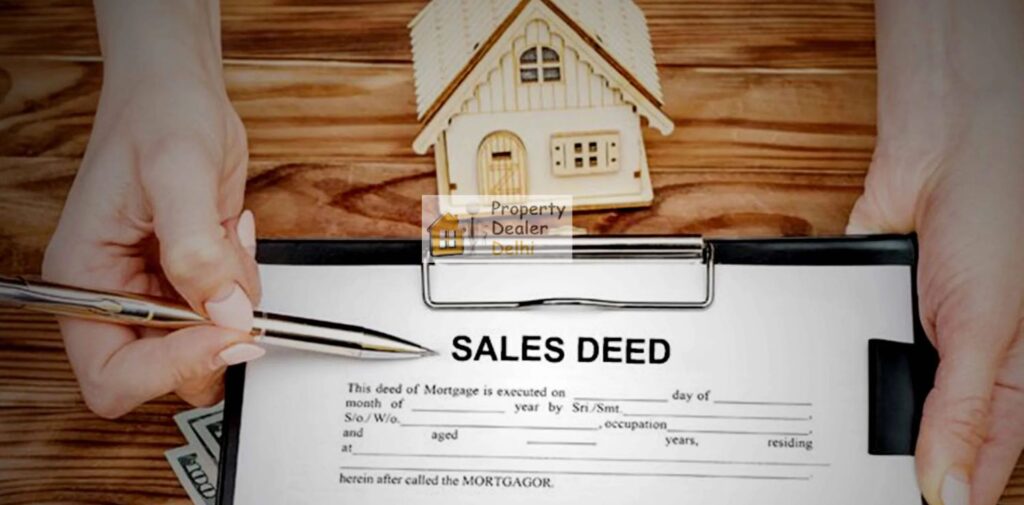
The Transfer Process for Property in Delhi can be a complex and time-consuming task, especially for first-time buyers and sellers. However, it is crucial to understand the steps involved to ensure a smooth and hassle-free transfer. This guide will explain the process in simple language, making it easier for you to navigate property transfers in Delhi.
1. Agreement and Negotiation
Before you start the transfer process, it’s important to finalize the terms of the property deal between the buyer and the seller. This usually begins with the signing of a Sale Agreement. This document will outline the agreed-upon price, payment terms, and conditions. It is advisable to have a clear understanding of all terms before signing the agreement to avoid any misunderstandings later.
During this stage, both parties should negotiate the final price and any additional terms, such as the inclusion of furnishings or amenities. Once both parties agree, the Sale Agreement is signed and the buyer pays an initial advance to the seller.
2. Due Diligence and Property Verification
Once the agreement is in place, the buyer should carry out due diligence. This involves verifying the legitimacy of the property documents and ensuring that there are no legal issues associated with the property. It is essential to check the title deed, which proves that the seller is the rightful owner of the property and has the legal right to sell it.
Buyers should also ensure that there are no outstanding dues, such as property taxes or utility bills. It is important to make sure that the property is free of any encumbrances or legal disputes. This step is crucial to avoid future complications after the transfer.

3. Sale Deed Drafting
After completing the due diligence process, the next step is drafting the Sale Deed. The Sale Deed is the legal document that transfers the ownership of the property from the seller to the buyer. It contains detailed information about the property, including its size, location, and boundaries, as well as the names of the buyer and seller.
This document must be signed by both parties in the presence of two witnesses. The Sale Deed also needs to be registered at the local sub-registrar office in Delhi. It is a mandatory step, as only a registered Sale Deed ensures the legal transfer of property ownership.
4. Registration of Sale Deed
The registration process takes place at the Sub-Registrar office, where the Sale Deed is submitted for registration. Both the buyer and seller need to be present with the required documents, including the signed Sale Deed, identity proof, address proof, passport-sized photographs, and PAN cards.
The buyer will also need to pay the applicable stamp duty, which is a state tax on property transactions. In Delhi, the stamp duty rates vary depending on whether the property is residential or commercial. The stamp duty is usually a percentage of the transaction value or the property’s market value, whichever is higher.
Once the Sale Deed is registered, the ownership of the property is legally transferred to the buyer. The buyer will receive a copy of the registered Sale Deed, which serves as proof of ownership.
5. Handover of Possession
After the registration of the Sale Deed, the next step is the handover of possession. This is the physical transfer of the property from the seller to the buyer. The seller hands over the keys and any other documents related to the property, such as utility bills or maintenance records.
The buyer should ensure that all property-related documents are in order and that the seller has vacated the property. It’s also important to make sure that the property is in the condition agreed upon in the Sale Agreement. Once the possession is handed over, the transfer process is considered complete.

6. Updating Property Records
After the transfer is complete, the buyer should update the property records in their name with the local municipal corporation or land records office. This step ensures that the property is officially recorded in the buyer’s name in government records. The buyer can also update the property’s name in the electricity, water, and other utility records to ensure that they are billed correctly.
Conclusion: Transfer Process for Property in Delhi
The process of transferring property in Delhi involves several important steps, including negotiating the agreement, verifying property documents, drafting the Sale Deed, registering the document, and updating property records. Understanding each step is crucial to ensure that the transfer is legally sound and free of complications. By following the right procedures and seeking legal advice when necessary, you can ensure that the property transfer process goes smoothly and that you are the rightful owner of the property.

